Description
CASLT’s Virtual PL Days provide a platform for teachers to connect with colleagues, engage in interactive professional learning opportunities, and share best practices. Our experienced team of professional learning facilitators will explore research-informed teaching approaches and strategies to inspire, motivate, and challenge teachers to improve their practice. The sessions will be recorded and participants will also leave each workshop with a ready-to-use teacher tool.
Registration Options
Multiple registration options are available to accommodate scheduling and budgetary constraints:
| Option | Member Price | Non-Member Price* |
| Full day (9:30 a.m. to 3:45 p.m. ET) | $75 + tax | $105 + tax |
| Half day AM (9:30 a.m. to 12:30 p.m. ET) | $40 + tax | $70 + tax |
| Half day PM (12:45 p.m. to 3:45 p.m. ET) | $40 + tax | $70 + tax |
*Includes a one-year CASLT membership.
Schedule
Each Virtual PL Day will include two streams (one in English and one in French) of four 75-minute workshops. Full day registration includes access to all four workshop blocks, and half day registration (either AM or PM) includes access to two workshop blocks.
| Start Time* | End Time* | Description | |
| 9:30 a.m. | 9:45 a.m. | Welcome and Introduction (Full day or Half day AM registrants) | |
| 9:45 a.m. | 11:00 a.m. | Unlock the Power of Movie Talks: Elevate Your Lessons with Embedded Reading
Language: English Adriana Ramírez |
Bridging Gaps: A UDL Framework for Inclusive Language Education
Language: French Stephanie Jackson |
| 11:00 a.m. | 11:15 a.m. | Break | |
| 11:15 a.m. | 12:30 p.m. | Play Your Way to Fluency: Building Language Proficiency One Game at a Time
Language: English Shauna Néro |
In the Zone: Flow in an Additional Language
Language: French Marc-Albert Paquette et Nancy Langlois |
| 12:30 p.m. | 1:00 p.m. | Break (Full day registrants) | |
| 12:45 p.m. | 1:00 p.m. | Welcome and Introduction (Half day PM registrants) | |
| 1:00 p.m. | 2:15 p.m. | Aligning Learning, Teaching, and Assessment: The CEFR in Action
Language: English Danielle Hunter |
Encouraging Autonomy and Skills Development Through Learning Centres
Language: French Shauna Néro |
| 2:15 p.m. | 2:30 p.m. | Break | |
| 2:30 p.m. | 3:45 p.m. | Redefining Language Teaching and Learning: Harnessing the Power of ChatGPT in the Classroom
Language: English Wei Cai |
Leading a Culture of Change: Using the Equity Audit Process to Initiate and Implement Inclusive and Diverse Resources in FSL
Language: French Rubina Sharma |
* Eastern Standard Time
Session Descriptions
English Sessions
Unlock the Power of Movie Talks: Elevate Your Lessons with Embedded Reading
Adriana Ramírez
Have you ever found yourself captivated by a movie scene, wishing you could bring that same level of engagement to your language classroom? Discover the dynamic combination of Movie Talks and Embedded Reading, a powerful duo that transforms lessons into immersive experiences, keeping students engaged and learning. Movie Talks use short video clips to provide Comprehensible Input (CI). Embedded Reading involves creating multiple versions of the same text, starting with a simple baseline and progressively adding more details, vocabulary, and complexity. This scaffolded approach helps students build comprehension of initially challenging texts. In this workshop, you’ll learn how to masterfully blend these two techniques, creating a synergy that introduces more vocabulary, grammar structures, and cultural context. Unlock the door to a world of CI, where language learning becomes an immersive, enjoyable journey.
Teacher Tool: Receive a ready-to-go embedded reading in Spanish, English, or French, complete with comprehension questions and a series of activities to accompany your Movie Talk lessons. This tool will provide content for up to four classes.
Play Your Way to Fluency: Building Language Proficiency One Game at a Time
Shauna Néro
Imagine a language classroom where students are so engaged they forget they’re learning. In this interactive workshop, participants will discover how to create a fun and interactive classroom environment that fosters language acquisition through play and social interaction. We will explore the power of a gamification pedagogy to improve and develop students’ proficiency and agency through research-based strategies that are designed to reuse and recycle language structures and vocabulary in authentic and fun ways. Participants will also learn how to use digital tools to design games that are adapted to the needs, and target languages, of their students. Come prepared to play and leave with practical ideas for placing your students at the centre of their learning through fun.
Teacher Tool: Receive strategies to design and create a classroom game to develop students’ literacy competencies through Canva. Share the game link and explain its learning objectives and instructions in the CASLT CoLab to support fellow language teachers.
Aligning Learning, Teaching, and Assessment: The CEFR in Action
Danielle Hunter
For over 20 years, the Common European Framework of Reference for Languages (CEFR) has been a guiding tool widely used in the Canadian context to foster innovation in language education. Published by one of the world’s leading human rights organizations and based on decades of extensive research, the CEFR was updated and extended in 2020 with the release of the CEFR Companion Volume. This session will provide a brief overview of the CEFR and explore the methodological perspective adopted in the framework: the action-oriented approach. Emphasis will be placed on how to align learning, teaching, and assessment using the CEFR’s “can-do” descriptors. Participants will receive ready-to-use examples of action-oriented scenarios, including action-oriented tasks, collections of sub-tasks, and sample assessment tools.
Teacher Tool: Receive a constructive alignment-based tip sheet for building their own action-oriented scenarios that promote active learning, critical thinking, and real-world application, enhancing overall student engagement and achievement.
Redefining Language Teaching and Learning: Harnessing the Power of ChatGPT in the Classroom
Wei Cai
Imagine having a versatile, intelligent assistant to support your language teaching efforts, engaging students like never before. Welcome to the future of language education with ChatGPT! This innovative workshop delves into the transformative potential of ChatGPT in creating dynamic, supportive environments for language learning. It will offer concrete guidelines and creative ideas for incorporating ChatGPT into various aspects of language education. Explore how ChatGPT can revolutionize your teaching methods with practical examples, learn strategies for crafting effective prompts that yield desired outcomes, and discover how to seamlessly integrate task-based language teaching principles into your curriculum. Join us to unlock the full potential of ChatGPT and elevate your language teaching to new heights.
Teacher Tool: Receive a ChatGPT activity template to help you plan and implement ChatGPT-driven activities, ensuring you can easily adapt and apply these innovative techniques in your classroom.
French Sessions
Bridging Gaps: A UDL Framework for Inclusive Language Education
Stephanie Jackson
The “Universal Design for Learning” approach, commonly known as UDL, is a framework for designing inclusive, culturally responsive, and trauma-informed learning experiences for all students. The UDL framework has the potential to eliminate opportunity gaps that exclude many learners, especially those who have been historically marginalized or underserved. This workshop will focus on strategies to implement the CAST model for UDL to support the learning needs of all language learners in an additional language or immersion setting. Teachers attending this session will gain valuable insights into how UDL can help eliminate opportunity gaps and foster a more inclusive learning environment. By the end of the session, educators will be equipped with the tools and knowledge to effectively integrate UDL into their lesson plans and classroom activities, ultimately supporting the success and well-being of every student.
Teacher Tool: Receive a practical guide for implementing UDL in the additional language classroom. This resource will help language educators offer flexibility and choice to students while removing barriers that can prevent learners from accessing information.
In the Zone: Flow in an Additional Language
Marc-Albert Paquette and Nancy Langlois
Do you know that feeling of getting so engaged in something that you lose track of time? What if we could have this kind of experience in an additional language? This phenomenon, known as “flow,” is a state of total immersion in which learning becomes both effective and enjoyable. Drawing on recent research on intrinsic motivation in additional-language didactics, we will explore how this concept can transform the additional-language learning experience. During this session, we will propose concrete guidelines and activities to undertake with your students to increase their engagement and encourage a state of flow in your classroom.
Teacher Tool: You will receive a turnkey kit for adding flow to your additional-language tasks. In it are checklist posters to help you use flow, lesson plans and a selection of turnkey guidelines for your classroom activities, and asynchronous webinars providing you with more information on the subject.
Encouraging Autonomy and Skills Development Through Learning Centres
Shauna Néro
Imagine a classroom where the students are actively engaged and enthusiastic about learning. In this session, participants will discover research that supports pedagogical practices featuring learning centres to develop learners’ literacy skills. By using learning centres to reinforce targeted structures and vocabulary, teachers enable students to interact in a playful and learning-centric way. Each participant will leave the session with practical strategies and ideas for putting this approach into action in the classroom right away.
Teacher Tool: Develop a series of three learning centres based on criteria that will enable you to achieve the objectives of the study program you’re teaching. Then, share resources and a description of the three centres in the CASLT CoLab to strengthen our community and learn from everyone’s professional expertise.
Leading a Culture of Change: Using the Equity Audit Process to Initiate and Implement Inclusive and Diverse Resources in FSL
Rubina Sharma
Are you ready to lead meaningful changes in your FSL program but aren’t sure where to start? By acknowledging the need for improvement, educators can take the first step toward transformative change. In this session, participants will engage in the equity audit process to identify and address gaps, omissions, and the under- and overrepresentation of diverse groups in their current FSL resources, lessons, and activities. Designed for instructional leaders, department heads, and teachers of FSL students in grades 7-12 (including Immersion, Extended, and Core French programs), this session will equip participants with the tools and knowledge needed to evaluate how well their FSL programs reflect the diversity of FSL learners and the global Francophone community.
Teacher Tool: Receive sample equity audit tools and skills progression-based program planners (long-range planning tools) that focus on culturally relevant and responsive pedagogy (CRRP). These resources will help educators create more inclusive FSL programming, ensuring their lessons better reflect and serve the diverse population of students they teach.
Time & Date
Location
Zoom
Facilitators
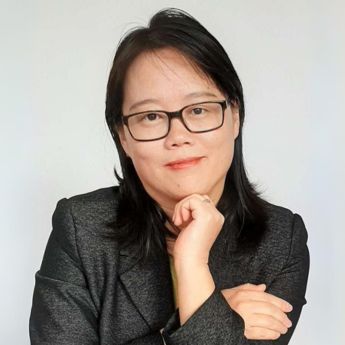
Professor, University of Calgary
Wei Cai
Dr. Wei Cai is a Professor of Chinese in the School of Languages, Linguistics, Literatures and Cultures at the University of Calgary. She is former Chair of the Division of Chinese Studies and Japanese Studies, Director of the Language Research Centre, and President of the Chinese Language Teaching and Research Association. Her research interests include second language listening and second language acquisition. Her major research area is second language listening. Her new book — Teaching and Researching Chinese Second Language Listening — was published by Routledge (Taylor & Francis Group) in 2022.
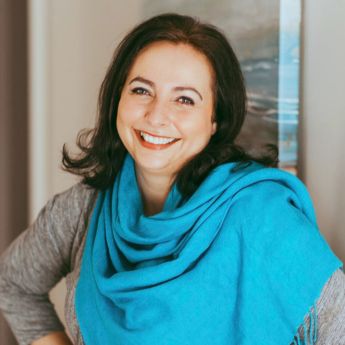
Doctoral Candidate, Ontario Institute for Studies in Education
Danielle Hunter
Danielle Hunter is one of seven international experts on the Common European Framework of Reference for Languages (CEFR) for the Council of Europe, the leading human rights organization in Europe. She has taught French as a Second Language (FSL) in the K–12 education system in Ontario for 22 years, during which she was seconded as the district consultant for Positive School Climates followed by another secondment for FSL and International Languages. Danielle has co-authored multiple pedagogical resources on the CEFR and was on the FSL writing team for the Ontario Curriculum. Danielle is currently a full-time Ph.D. student at the University of Toronto/Ontario Institute of Studies in Education (OISE) in Language and Literacies Education.
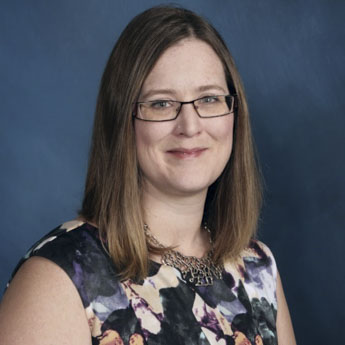
Program Coordinator, Edmonton Public Schools
Stephanie Jackson
Stephanie Jackson began her career as a junior high teacher of French as an Additional Language at Edmonton Public Schools (EPSB) and transitioned to central leadership as a consultant and program coordinator. In these roles, Stephanie worked to support local, provincial, national, and international educators and administrators in additional language and immersion programs. With a passion for educational technology and language learning, Stephanie helps teachers to see the potential for enriching their classrooms through technology integration and inclusive teaching practices. She is often asked to present on the topics of effective language teaching and assessment, technology integration, and leadership development. She has been a contributor, author, and/or project coordinator for many teacher and student resources through her work with EPSB and her volunteer role as Vice President of the Additional Languages and Intercultural Council of the Alberta Teachers’ Association.
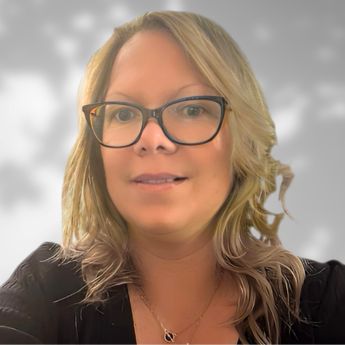
FSL Educational Consultant, Eastern Shores School Board
Nancy Langlois
Nancy Langlois has been a French as a second language (FLS) educational consultant with the Eastern Shores School Board (ESSB) since 2012. After teaching second languages for 14 years, she developed a passion for information and communication technologies (ICT). She continues to teach, offering online tutoring with LEARN Québec since 2008. She also participates and collaborates on various committees within the Quebec Ministry of Education (MEQ) and through the Anglophone school network.
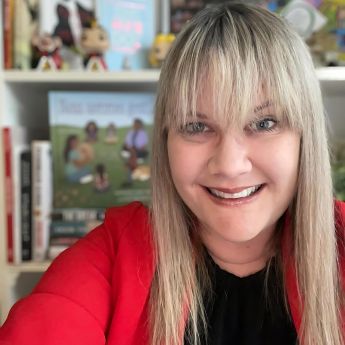
French Programs Coordinator, Mission Public Schools
Shauna Néro
Shauna Néro is the French Programs Coordinator for Mission Public Schools. Previously, she coordinated the Provincial Network for BC Administrators and Teachers of French Programs at Simon Fraser University’s Office of Francophone and Francophile Affairs (SFU). With a background in teaching French Language Arts and Social Studies in French Immersion and Core French at the high school level, Shauna also taught methodology courses at SFU for student candidates and has been Vice Principal of a dual-track immersion elementary school. She earned a master’s degree in education from SFU and thereby applies a plurilingual and pluricultural approach in a Universal Design for Learning framework to teach French in order to foster authentic, action-oriented learning experiences to enhance and develop students’ intercultural and linguistic competencies in French.
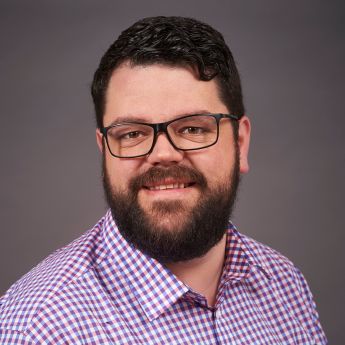
Provincial FSL Educational Consultant, LEARN
Marc-Albert Paquette
Marc-Albert Paquette is currently a provincial educational consultant in French as a second language (FLS) for LEARN Québec. He also serves on the executive committee of the Association québécoise pour l’enseignement du français langue seconde (AQEFLS). Actively involved in education since the early 2000s, he has served as President of AQEFLS, the Canadian Association of Immersion Professionals (ACPI), and the North American Commission of the International Federation of French Teachers (CAN-FIPF). Marc-Albert is interested in the development of multilingual and pluricultural competence and student engagement in FSL.
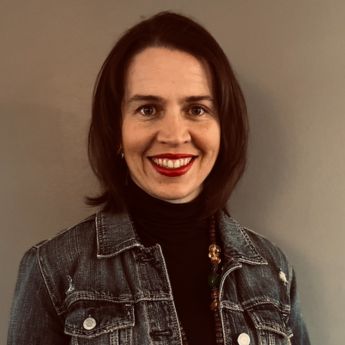
Educator, Author, Trainer, and Coach
Adriana Ramírez
Adriana Ramírez is a Spanish teacher, author, and teacher trainer. She shares her knowledge and experience of over 20 years in the classroom by training teachers on comprehensible input (CI) methodologies. She also trains teachers on incorporating anti-bias and anti-racist work in the language classroom. Adriana has trained teachers in Canada, the US, and Europe. She also holds a double major in Psychology, a degree in Clinical Psychology and a master’s degree in education. Adriana is passionate about sharing the beauty of her country and her people with the world through her novels. A prominent advocate of the #OwnVoices movement, Adriana strongly believes that those who come from traditionally oppressed and colonized countries and territories must reclaim their right to tell their own stories and build their own narratives. Originally from Colombia, she actively works on recuperating the stories that are part of her heritage.
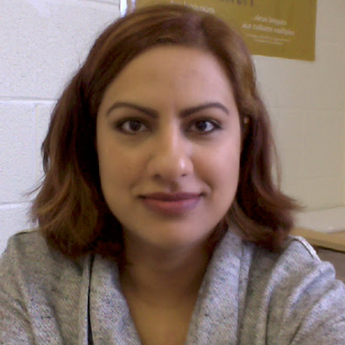
French Immersion Teacher
Rubina Sharma
Ruby Sharma has nearly two decades of experience as a French teacher, department leader, school leader, and system leader in both Core and Immersion FSL programs in York Region District School Board. She is also a course instructor and developer for FSL Additional Qualification (AQ) courses. Ruby embarked on her journey with the FSL Disrupt team through their shared Twitter Professional Learning Network. She was immediately captivated by the dynamic and open dialogue led by Mandy, Mimi, and Amanda, focusing on diversifying texts in French as a Second Language (FSL). Their effective use of technology and social media to drive tangible change across education boards and districts highlighted their collaborative spirit. This motivated Ruby to join their mission to help diversify the texts used in FSL classes. Ruby believes that fostering inclusive and diverse FSL learning spaces, from an anti-oppressive and anti-racist perspective, should be the shared objective of all FSL educators.
Have any questions regarding this event?
Contact our Projects and Professional Learning Coordinator:





